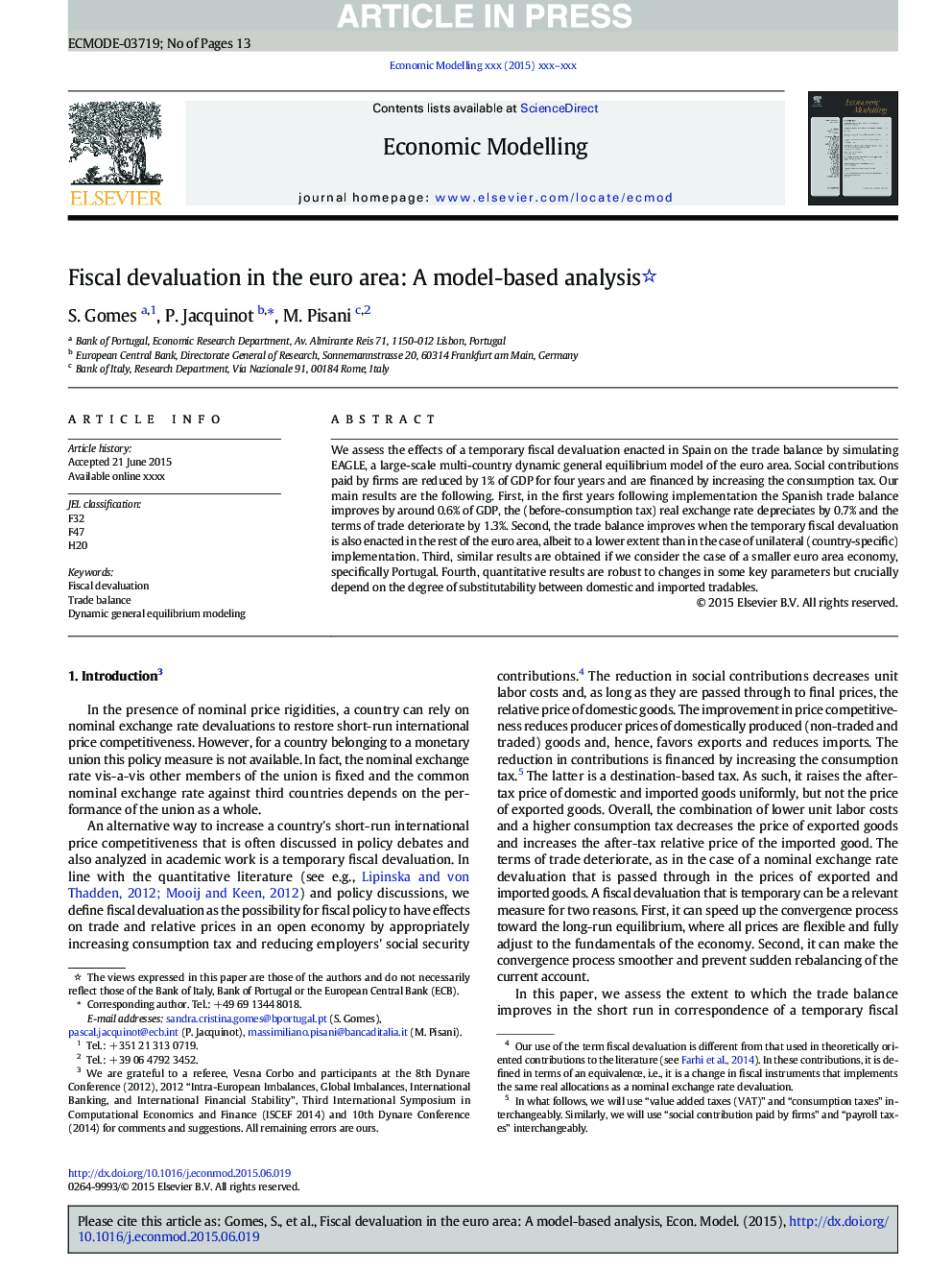| Article ID | Journal | Published Year | Pages | File Type |
|---|---|---|---|---|
| 5053523 | Economic Modelling | 2016 | 13 Pages |
Abstract
We assess the effects of a temporary fiscal devaluation enacted in Spain on the trade balance by simulating EAGLE, a large-scale multi-country dynamic general equilibrium model of the euro area. Social contributions paid by firms are reduced by 1% of GDP for four years and are financed by increasing the consumption tax. Our main results are the following. First, in the first years following implementation the Spanish trade balance improves by around 0.6% of GDP, the (before-consumption tax) real exchange rate depreciates by 0.7% and the terms of trade deteriorate by 1.3%. Second, the trade balance improves when the temporary fiscal devaluation is also enacted in the rest of the euro area, albeit to a lower extent than in the case of unilateral (country-specific) implementation. Third, similar results are obtained if we consider the case of a smaller euro area economy, specifically Portugal. Fourth, quantitative results are robust to changes in some key parameters but crucially depend on the degree of substitutability between domestic and imported tradables.
Related Topics
Social Sciences and Humanities
Economics, Econometrics and Finance
Economics and Econometrics
Authors
S. Gomes, P. Jacquinot, M. Pisani,
